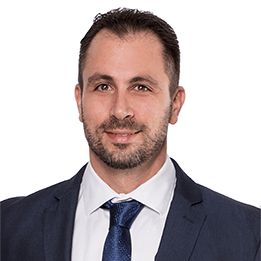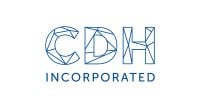

Head legal and ethics | Discovery Health Medical Scheme



Howard Snoyman
Head legal and ethics | Discovery Health Medical Scheme
What are the most significant cases and transactions that your legal team has recently been involved in?
Various of our industry and direct engagements focused on influencing change to the National Health Insurance Bill, in order to ensure that Universal Health Coverage would be able to be implemented rationally and sustainably in South Africa, in a manner that is synergistic to as opposed to destructive of various existing facets of the local health care sector and health insurance sector, which are pockets of excellence and benefit many millions of people.
We have also been involved in the design and implementation of a Procurement Governance Framework, to objectively assess risks associated with contracting with any type of service provider. This is seen as an important tool used in our pursuit of proactively preventing the risk of contracting with corrupt entities, or those who would tarnish our reputation by virtue of how they may conduct their affairs.
We have also coordinated the responses to regulatory inspections, which seem to broaden in scope with each successive iteration.
Further, we have been involved in the resolution of many of the most escalated cases emanating from various aspects of the business.
Could you share an example of a time when you came up with an innovation that improved how your legal team works and did not come at a large expense?
The various executive teams within the business spend valuable time considering which adverse regulatory rulings to settle, and which to take on appeal, as well as cases escalated for a variety of other reasons. In as much as this process seeks to consider the individual circumstances and merits of each case (some of which may be quite emotive), best-practice governance requires consistency in rationale and decision-making, in the interests of fairness to members and the responsible use of funds. With this in mind, I designed an algorithm that considers various factors such as the merits of an escalated case, the prevalence of the claim in question, the costs associated with the claim and whether those costs will be ongoing or are of a one-off nature (amongst other factors), to arrive at a recommendation as to whether to settle the matter or contest it through the various regulatory dispute resolution channels. The result has been that the recommendations brought to the executive committee have been more streamlined, with fewer matters that need to be escalated, and the objectivity and consistency of the decision-making has been improved.
How do you see the general counsel role evolving in South Africa over the next five-ten years?
General counsel are going to need to become all-rounders, to an even greater extent than is the case today. The enterprises that make the most productive use of their general counsel at C-Suite level, in allowing them to guide both operations and strategy, will undoubtedly reap the rewards in time to come. In order to be of sufficient value once elevated to such a role though, the general counsel must have intimate knowledge of the business and the industry that it operates within, the needs of its stakeholders and the concerns of its regulator, over and above the evolving standards of corporate governance and general legal considerations. A company that empowers a general counsel who embodies these qualities, is likely to flourish.
What are some of the key developments that have affected your business over the past (several) years?
Whilst the Covid-19 pandemic caught the entire world off-guard, medical schemes in South Africa, which operate in a relatively conservative regulatory environment, were in completely uncharted territory. Priorities at the time were to fund life-saving appropriate medical care for members, facilitate the rollout of vaccine availability and distribution, advise members who were most at risk how best to manage their Covid-related risk, and operate remotely in a field that demands best practice governance. The business achieved these objectives and more. My learning and growth trajectory during this time of crisis was steep, but invaluable. In the ideal circumstance of the world not facing a pandemic of such proportions again, the opportunity to learn and grow under such unique circumstances will similarly not likely come around again. To have been able to play a role, small as it may have been, in facilitating the sustainable funding of optimal care for 2.8 million insured lives during this time, continues to be a springboard for me to expand my perspective and expertise over time.
Head legal and ethics | Discovery Health Medical Scheme